A slave 4 U: Britney Spears finally strips away the fantasy
Britney Spears’ court testimony broke a spell that has surrounded the singer for most of her adult life. A generation of fans are now campaigning on claims of exploitation and denial of rights.
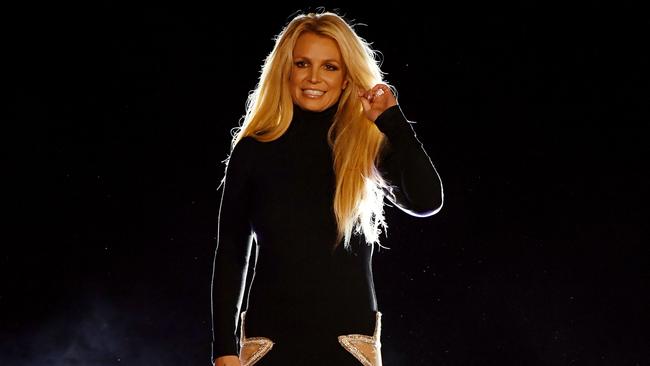
When Britney Spears told a Los Angeles court in June all the things she was forbidden under her conservatorship, her testimony broke a spell that has surrounded the singer for most of her adult life.
Nervous but determined, the pop star stripped away any fantasy that the controls placed over her life and person 13 years ago were either wanted or served her best interest.
One of the most successful female performers in history, Spears wanted the most painfully basic things.
To drive her car. See her friends. Go to the spa. Marry her boyfriend and have more children. Not take lithium. Remove her IUD. Work less. Choose her own lawyer for the conservatorship proceedings where her money was paying for everyone’s legal counsel.
Speaking with a Louisiana twang, Spears, 39, told the court: “I deserve to have a life.”
Under US law, a conservator is appointed by a court to manage the finances of someone deemed incapable of making decisions; usually the person is very old or ill. In some cases, as with Spears, the conservator has control over the individual’s life and daily activities. Spears’s father, Jamie Spears, was appointed her conservator in 2008 after the singer suffered a public breakdown and was deemed incapable of looking after herself. In 2019 Jamie stepped down as overseer of his daughter’s personal life but retained control of her finances. Last month Jamie agreed to relinquish control of Spears’s estate, but a document filed by the singer’s lawyer this week alleged Jamie had asked for about $2.7 million in payments before his departure. The matter is next before the court on September 29.
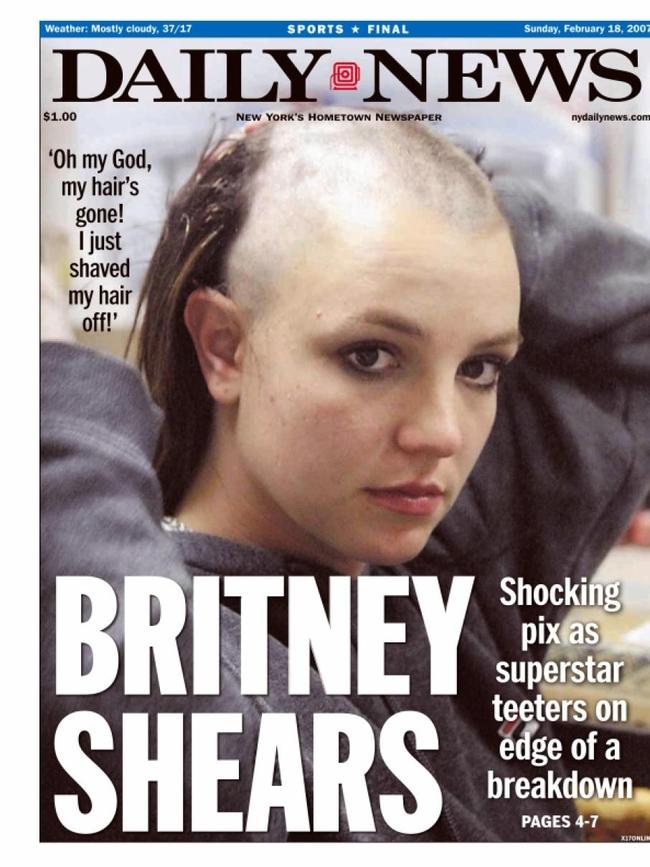
The testimony Spears gave on June 23 came after more than a year of mounting scrutiny over the conservatorship driven by the activism of her millions of fans worldwide.
Over the past year, her fans have watched as the female pop icon of their childhood fought and pleaded for basic freedoms.
Most of these women are now in their mid 20s to early 40s, but in 2007 when Spears shaved her head they were in high school, starting university or freshly in the workforce.
Pop culture expert and University of Melbourne professor Lauren Rosewarne says Spears accompanied this cohort through their formative years, and they have been left reeling at how little self-determination the singer appears to have.
“These are women who are now in their own careers, potentially starting families, having autonomy over their lives”, yet, says Rosewarne, these fans have now heard allegations that Spears has had no control over her reproductive function.
“So there’s also that element of shock and also just feeling empathy about how bodily autonomy is for us… Here’s a woman in the western world, making millions of dollars, (who) doesn’t have that herself.”
In Marrickville in Sydney’s inner west, longtime Spears fan Jom Hirsch, 30, says she’s known about the conservatorship since it started but was horrified to learn what it actually meant for her childhood icon.
“I sort of thought, because it was her family looking after her, that they would have her best interests at heart,” she says. “That’s partly what makes it so shocking.”
When Spears in January 2019 dramatically cancelled her Domination performance residency at the Park Theater in Las Vegas, a month before it was due to start, she said on Instagram it was because she needed to spend time with her sick father.
Within fan communities, rumours and theories began to circulate as people questioned the two-month delay between Jamie Spears’s hospitalisation for a ruptured colon and the cancellation.
Comedians Babs Gray and Tessa Barker initially started their podcast Britney’s Gram in jest, with the two women discussing potential clues and hidden messages in the singer’s quirky posts.
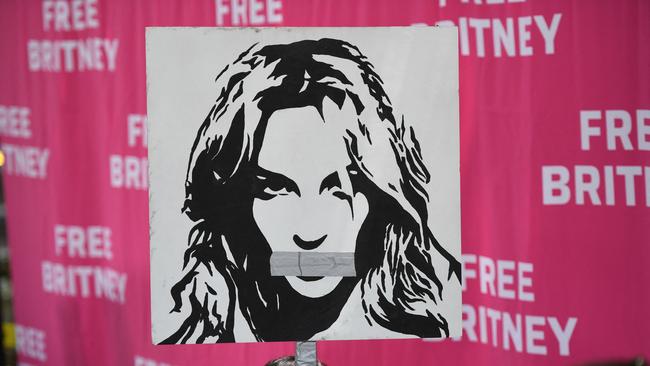
Then they received a voicemail from someone claiming to be a former paralegal for Spears’s team, who said the singer had been forcibly institutionalised after refusing to take medication.
This, the paralegal claimed, was the real reason the Domination residency was cancelled. Britney’s Gram published the voicemail and the Free Britney movement exploded.
“When we decided to release that (Free Britney episode), I don’t think we were prepared for the snowball effect it would have,” Gray tells Review from California. “So I don’t think we were really prepared to take charge of a whole global movement necessarily, but I think what kind of happened is different people stepped up and did different parts so there’s a lot of organisers and activists who are just all over the world and run rallies or they’re trying to get conservatorship reform passed through.”
On July 14, Harriet Young, 30, was at a Free Britney demonstration at the Lincoln Memorial in Washington DC and brandished a neon pink sign that said “Not a girl, not yet a free woman” as part of support rallies across the US.
About 4,300km away, Spears was given permission by Los Angeles judge Brenda Penny to choose her own legal counsel. Her choice, celebrity attorney Mathew Rosengart, has filed a petition seeking to remove Jamie Spears as soon as possible.
From Sydney’s northern beaches, Young is completing a Masters of Law at Washington University and became actively involved in the Free Britney movement at the beginning of the year. She has been a fan of Spears since Hit Me Baby One More Time was released in 1998. She says you don’t need to like the singer or agree with her choices to object to the injustice of her position.
“The legal threshold for a conservatorship is someone who is unable to make decisions (and) that’s not her,” she says. “The fact that you would suggest that because you don’t approve of someone’s decisions is sufficient to take away all of their legal rights… what kind of precedent does that set for anyone?
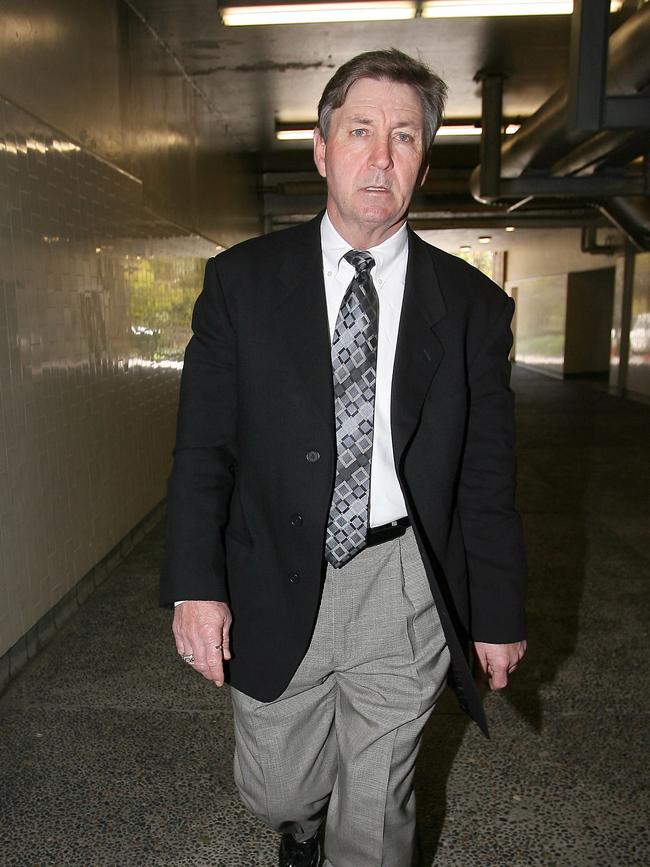
“I mean, when I was 20, you probably didn’t like any of the decisions I made either, but my dad didn’t swoop in and try to take control of my life legally – it’s just crazy.”
Young says the strongest and most vocal of the Free Britney groups is in Los Angeles, while the Washington DC group is more focused on rallying for federal reform of conservatorships and guardianships.
Over the past 13 years, Spears has released four albums, toured the world, and played 248 shows during the four-year Piece of Me residency in Las Vegas.
Jamie Spears was granted – initially temporary – control of the singer’s finances, healthcare and daily routine by the Los Angeles Superior Court. He is paid $16,000 a month and receives a cut from her performances.
From California, Gray says there was an element of guilt in the resurgence of popular support for Spears, both for assuming the conservatorship was in her best interest and for allowing her to be denigrated by the press.
“I think that a lot of people are feeling guilty about not only thinking, ‘Oh, well, you know, that’s what’s best, Daddy knows what’s best’ – but about what got her into this in the first place, which was the media obsession and the constant harassing of her by photographers,” she says.
“We’ve all seen the videos of her being chased by photographers and stuff, but when you really spend the time watching those, it is disturbing and I just can’t believe we let her down at that point.
“I’m mad at all of us for allowing that to happen in the first place. I don’t think she would be in this position [if we had acted sooner].”
Gray and Barker have since released a new podcast called Toxic, on Stitcher, that investigates Spears’s conservatorship.
Two episodes in the noughties alerted the world to the fact that not all was right in Britney’s world.
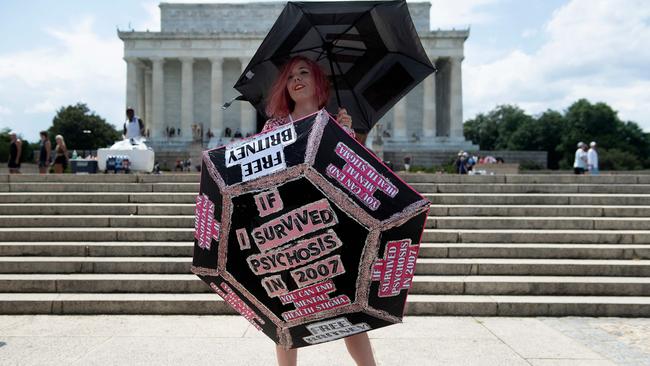
The first, in February 2006, was when Spears was pictured driving down the Pacific Coast Highway in Malibu with her son, Sean Preston, then four months, in her lap and not secured in a child-safety seat. The incident triggered a media firestorm and fierce criticism of Spears as a mother.
She said she was trying to flee the paparazzi after becoming frightened by aggressive photographers.
The second incident was a year later on February 16, 2007. Outside Esther’s hair salon in the Los Angeles suburb of Tarzana, more than 70 photographers captured Spears shaving her brown locks with clippers, just hours after leaving rehab. Images of the shorn superstar, then 25, made international headlines.
It was only in 2019 that reports emerged that, before the haircut, Spears had been denied access to her children at the nearby home of soon-to-be-divorced husband, Kevin Federline. She was caught on camera several days later, sobbing outside Federline’s house after again being prevented from seeing her children.
In front of the leering paparazzi, Spears attacked a car with an umbrella. About a year later, the singer suffered the breakdown that was the catalyst for the conservatorship. At her rooftop home in Mulholland Drive on January 30, 2008, Spears refused to hand over her children to Federline. After the singer’s then appointed court monitor put eldest child Sean Preston in her ex-husband’s car, Spears locked herself and her youngest son, Jayden James, then 18 months, in a bathroom.
Authorities retrieved the boy, hospitalised Britney and placed the singer under a 5150 psychiatric hold, paving the way for the conservatorship. Photos were published of the singer strapped to a stretcher inside the ambulance.
In February, the New York Times documentary Framing Britney Spears was released. The film examines Spears’s rise to fame and her treatment by an intrusive media, particularly in light of the #MeToo movement and the rise of sex positivity and sexual autonomy. It makes for uncomfortable viewing, as TV footage shows the then-teenage Britney being asked about her breasts, virginity and her part in destroying America’s youth.
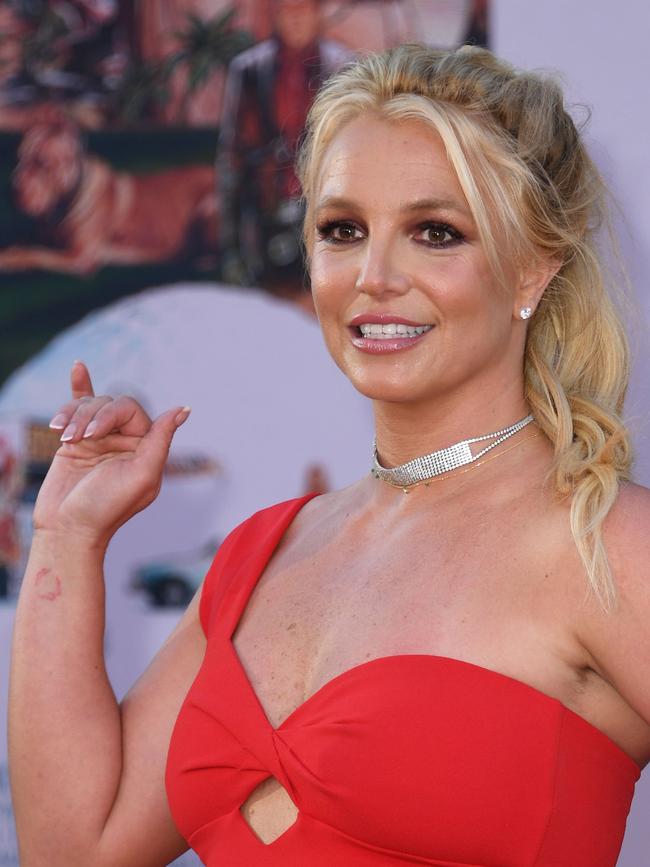
Rosewarne says it is confronting to watch how the teenage singer was treated.
“I think there’s an element of looking back to our culture and how she was treated, particularly by mainstream media and how hostile they were and the double standards there around gender,” she says. “We’re looking back in horror.”
According to documents filed by his lawyer in August, Jamie Spears has agreed to step down as conservator when “the time is right” and assist with “an orderly transition to a new conservator”. The lawyer said there were “no actual grounds” for Jamie’s removal and emphasised he has not forced his daughter to do anything.
Jamie has also argued he’s been subject to “unjustified attacks” and that the public does not know the extent of his daughter’s battles with mental illness and drugs.
In her June testimony, Spears said she once cried on the phone to her father for an hour and said he “loved every minute of it”. “The control he had over someone as powerful as me, he loved the control to hurt his own daughter, 100,000 per cent,” she said.
In the bayside Melbourne suburb of Mentone, Agatha Samborska, 43, has been an active member of the Free Britney movement since early 2019.
She has been fastidiously researching the singer’s conservatorship and trying to educate others. Like most Free Britney supporters, Samborska seems genuinely to care about Spears and is invested in her wellbeing.
“The most important thing to me is that she is free and happy to live her life as she wants,” she says.
At the crux of the Free Britney movement, is the sense that the world allowed something terribly wrong to happen to the singer when she was at her most vulnerable.
Now her supporters want her to be heard and supported, as if stepping into the role they assumed her family was taking 13 years ago when the conservatorship began.
“She said she didn’t think people would believe her and now that she has spoken out, I hope that people believe her,” Samborska says.
“She wants to terminate the conservatorship. I guess we will continue to stand up for her until she’s out of the conservatorship.”

